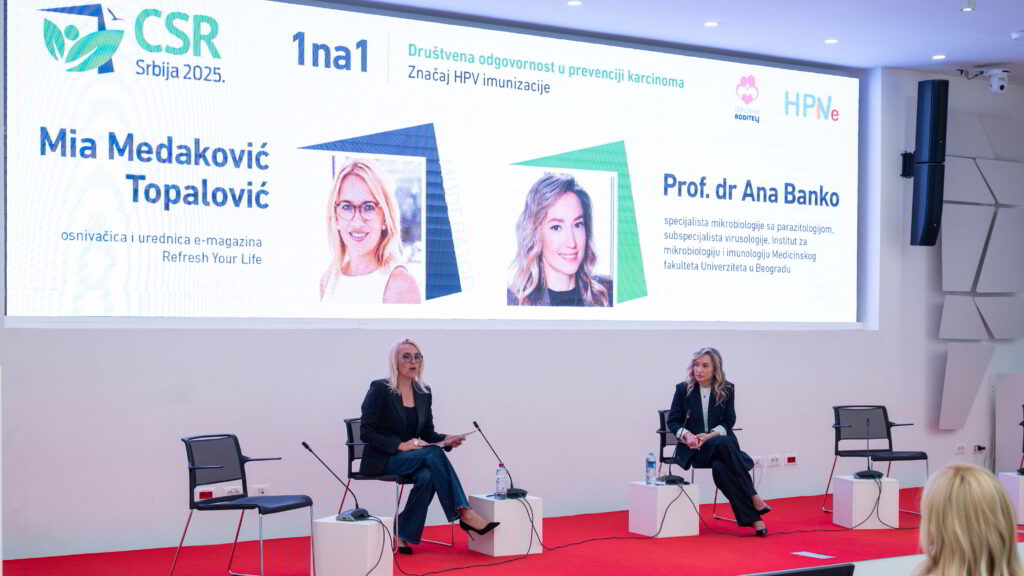‘The pioneers of social responsibility’
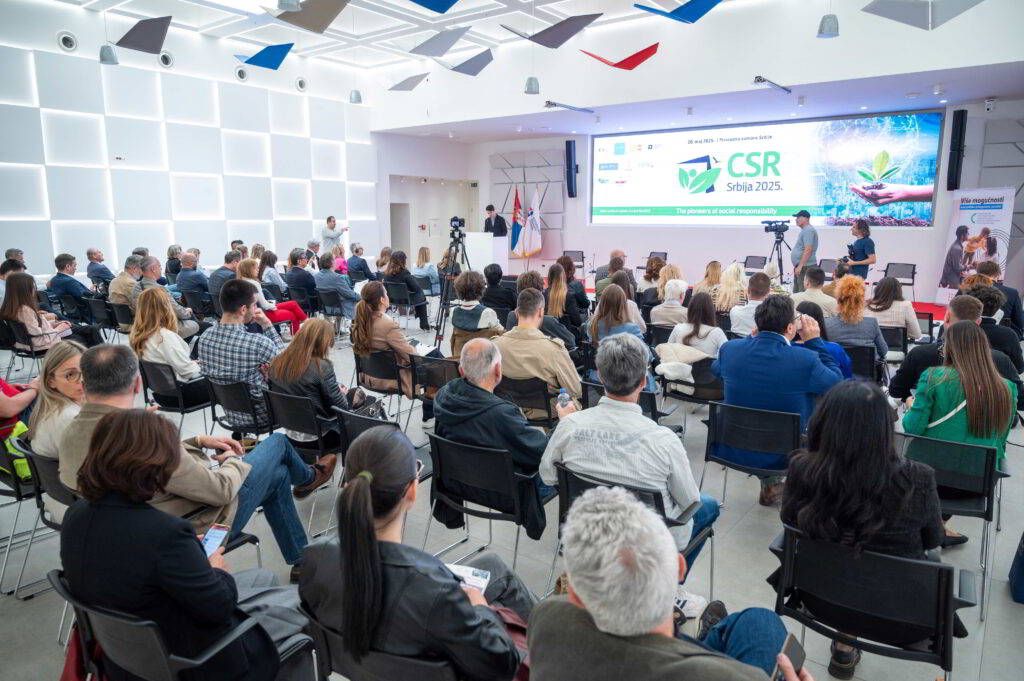 Color Media Events, in cooperation with the Serbian Chamber of Commerce, organised the tenth anniversary edition of the CSR Serbia 2025 conference on corporate social responsibility.
Color Media Events, in cooperation with the Serbian Chamber of Commerce, organised the tenth anniversary edition of the CSR Serbia 2025 conference on corporate social responsibility.
The conference was held on 20 May 2025 at the Serbian Chamber of Commerce in Belgrade. The event brings together representatives from companies, institutions, the civil sector and the media to exchange experiences and promote best practices in corporate social responsibility.
This year’s conference focuses on key issues such as protecting human and minority rights, environmental preservation, business ethics, social inclusion, cultural investment, and employee development.
Speakers and panellists include representatives of leading companies, international organisations, and relevant institutions that are contributing to developing a sustainable and responsible business environment in Serbia.
At the conference’s opening, Siniša Mitrović from the Serbian Chamber of Commerce highlighted: “Corporate social responsibility is nothing new – it is a way of thinking in which giving becomes a natural part of doing business. We promote these values through the ‘Đorđe Vajfert’ award, but genuine CSR development requires a whole ecosystem, including tax incentives for companies that invest in their communities. Reduced fiscal burdens must back donations and social support.”
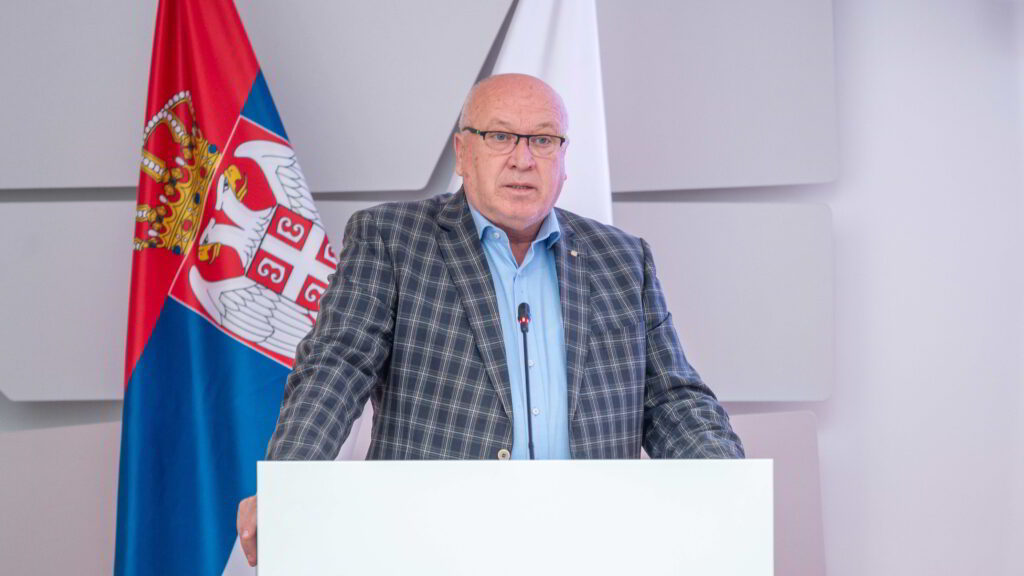 Among the keynote speakers who opened the CSR Serbia 2025 conference was the Minister of Public Administration and Local Self-Government, Snežana Paunović, who stated: “It is an honour to open this important conference on corporate social responsibility on behalf of the ministry. We are working to strengthen the capacities of local self-governments so they can actively contribute to social development. CSR is a lasting obligation for all of us, and at its core, it must be the worker – there is no responsible business without respect for workers’ rights. Companies that care for their employees and their communities deserve recognition and tax incentives as both encouragement and example to others.”
Among the keynote speakers who opened the CSR Serbia 2025 conference was the Minister of Public Administration and Local Self-Government, Snežana Paunović, who stated: “It is an honour to open this important conference on corporate social responsibility on behalf of the ministry. We are working to strengthen the capacities of local self-governments so they can actively contribute to social development. CSR is a lasting obligation for all of us, and at its core, it must be the worker – there is no responsible business without respect for workers’ rights. Companies that care for their employees and their communities deserve recognition and tax incentives as both encouragement and example to others.”
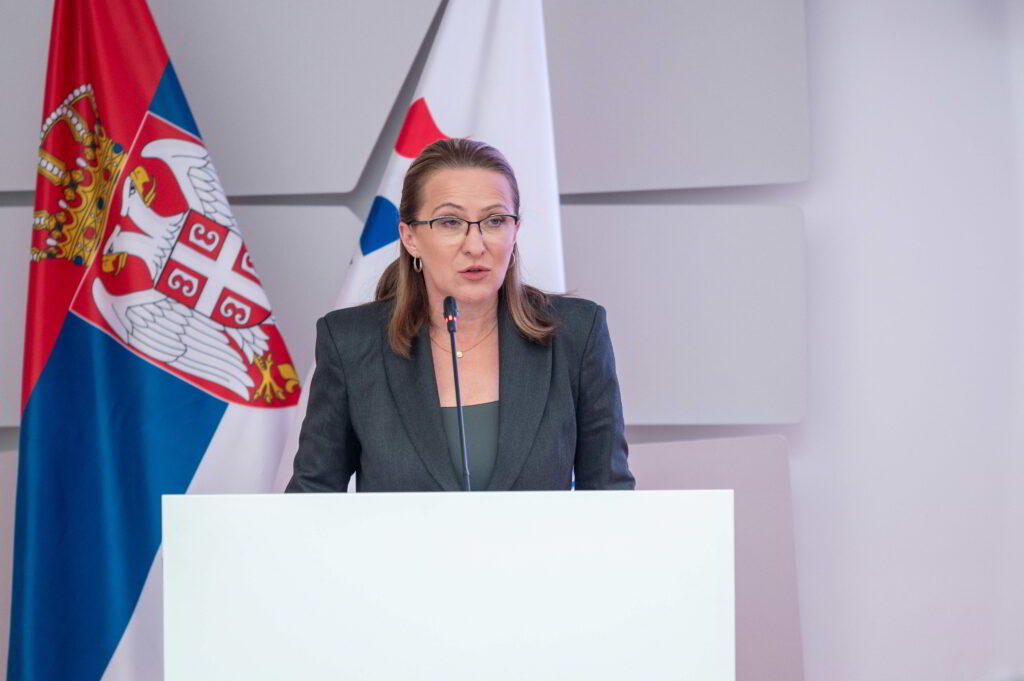 Brankica Janković, Commissioner for the Protection of Equality, welcomed participants and guests, stating: “Every new platform for discussing the connection between people, profit and the planet is welcome. Corporate social responsibility includes all these components, but society must come first. Although we have a long-standing tradition of responsible business dating back to the socialist era, we often forget that we are not reinventing the wheel – we are simply building on what we already know. CSR benefits everyone – both companies and communities – but it must be grounded in respect for human rights. Unfortunately, discrimination in the labour market still exists, as evidenced by the work of the institution I lead. However, an increasing number of companies are recognising equality as the foundation of a healthy and successful working environment.”
Brankica Janković, Commissioner for the Protection of Equality, welcomed participants and guests, stating: “Every new platform for discussing the connection between people, profit and the planet is welcome. Corporate social responsibility includes all these components, but society must come first. Although we have a long-standing tradition of responsible business dating back to the socialist era, we often forget that we are not reinventing the wheel – we are simply building on what we already know. CSR benefits everyone – both companies and communities – but it must be grounded in respect for human rights. Unfortunately, discrimination in the labour market still exists, as evidenced by the work of the institution I lead. However, an increasing number of companies are recognising equality as the foundation of a healthy and successful working environment.”
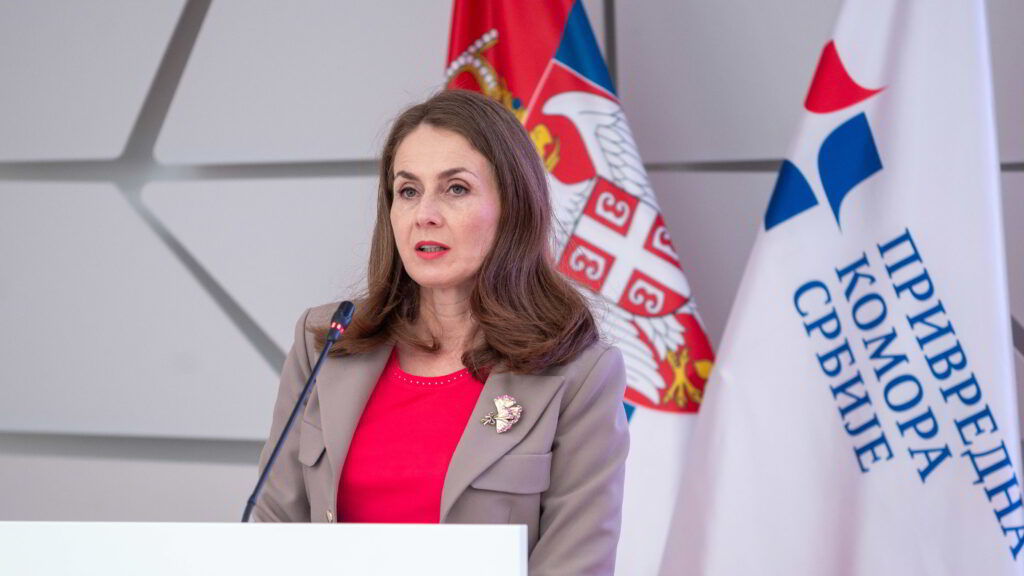 The Swedish Ambassador to Serbia, H.E. Charlotte Samelin, shared her country’s examples: “For Sweden, sustainable and responsible business is not just a policy framework — it is part of our national identity. We believe economic success must go hand in hand with social justice, environmental protection, and respect for human rights. Regulation is not a burden for us — it is a catalyst. It creates a level playing field, drives innovation, and makes sustainability the norm rather than the exception. Corporate social responsibility is a shared responsibility of governments, businesses, and civil society — we can only build a more just and sustainable society.”
The Swedish Ambassador to Serbia, H.E. Charlotte Samelin, shared her country’s examples: “For Sweden, sustainable and responsible business is not just a policy framework — it is part of our national identity. We believe economic success must go hand in hand with social justice, environmental protection, and respect for human rights. Regulation is not a burden for us — it is a catalyst. It creates a level playing field, drives innovation, and makes sustainability the norm rather than the exception. Corporate social responsibility is a shared responsibility of governments, businesses, and civil society — we can only build a more just and sustainable society.”
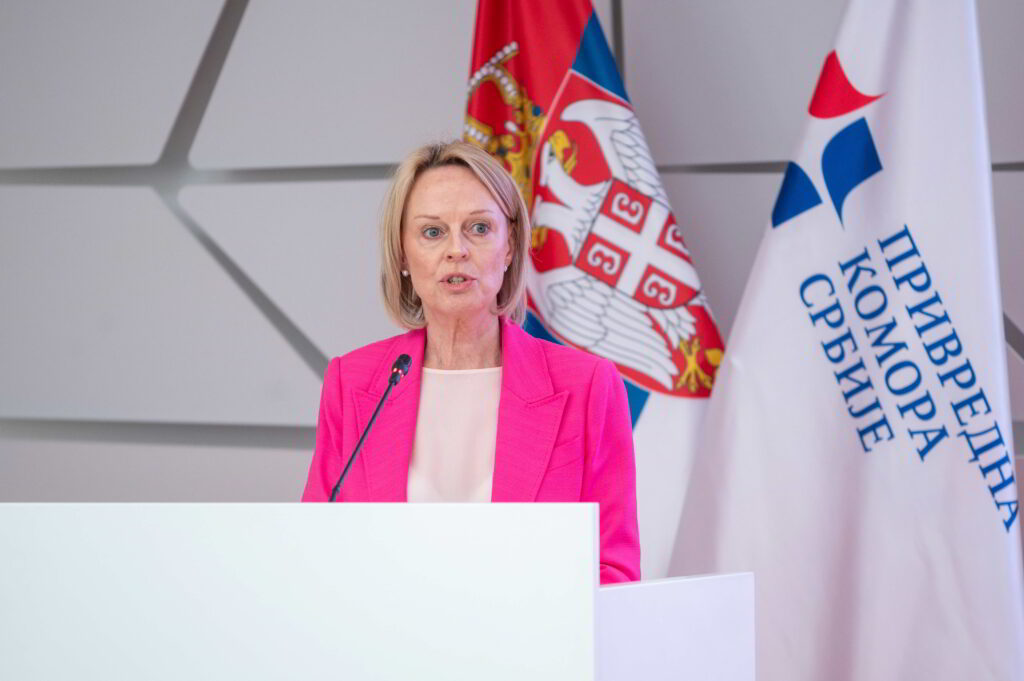 She was followed by Dejana Kostadinova, UNICEF Representative in Serbia, who said: “The world our children inherit is changing rapidly — climate change, conflict, and growing inequalities are reshaping childhood, but we still have the opportunity to steer this transformation in a positive direction. UNICEF sees the private sector as a key partner in this mission. Companies shape children’s environment through employment policies, community support, and the conditions they provide for families. Together with businesses in Serbia, we are strengthening national systems so every child can access healthcare, education, and protection. Family-friendly policies are not just socially responsible — they are the foundation of sustainable growth. That’s why we must measure success not only through profit, but through the well-being of children and the strength of our communities.”
She was followed by Dejana Kostadinova, UNICEF Representative in Serbia, who said: “The world our children inherit is changing rapidly — climate change, conflict, and growing inequalities are reshaping childhood, but we still have the opportunity to steer this transformation in a positive direction. UNICEF sees the private sector as a key partner in this mission. Companies shape children’s environment through employment policies, community support, and the conditions they provide for families. Together with businesses in Serbia, we are strengthening national systems so every child can access healthcare, education, and protection. Family-friendly policies are not just socially responsible — they are the foundation of sustainable growth. That’s why we must measure success not only through profit, but through the well-being of children and the strength of our communities.”
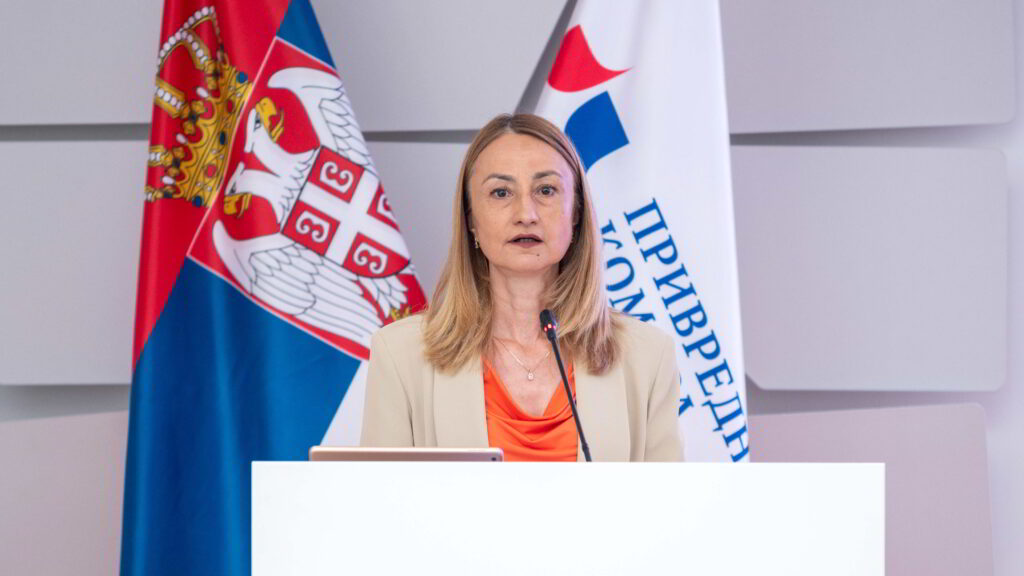 Following the opening addresses, the conference continued with panel discussions.
Following the opening addresses, the conference continued with panel discussions.
CSR and Family-Friendly Policies: Investing in Employees, Gaining as a Company
The discussion focused on practices that support a better work-life balance, emphasising gender equality, parental support, and employee empowerment through inclusive policies.
Svetlana Budimčević moderated the panel from the Employers’ Union of Serbia. Speakers included the Austrian Ambassador to Serbia, H.E. Christian Ebner; Minister without Portfolio for Gender Equality, Tatjana Macura; Head of the UNFPA Office in Serbia, Borka Jeremić; and Vladimir Lalošević, Director of CNT and President of the Vojvodina Employers’ Union.
The panel explored how socially responsible companies can benefit long-term by investing in their people and promoting values that support family life.
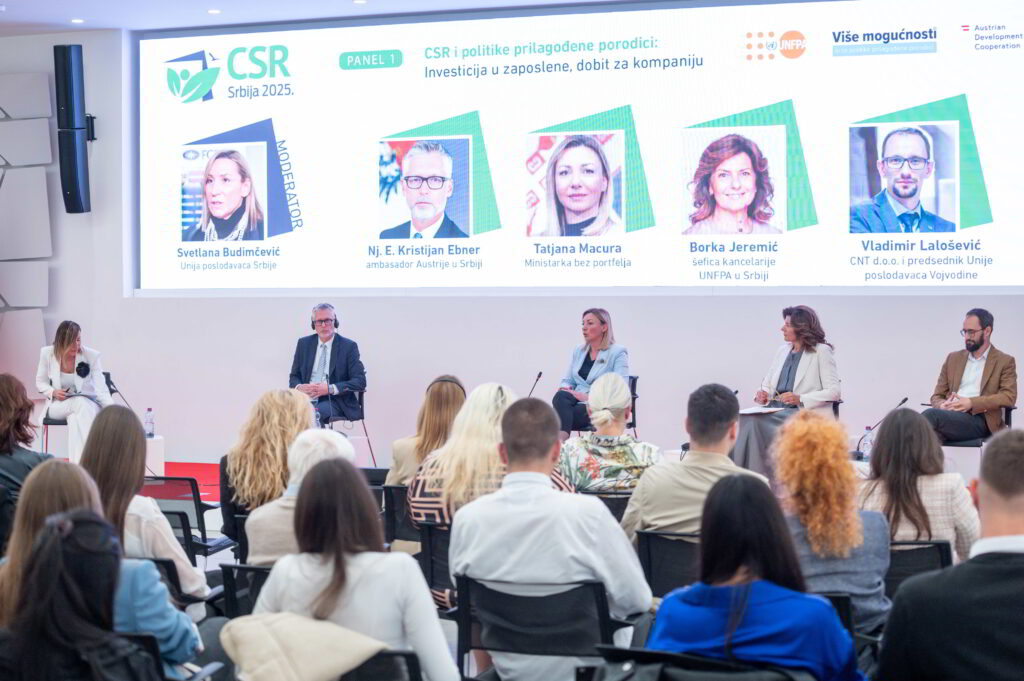 Responsibility in Practice: How Leaders Shape a Sustainable Future
Responsibility in Practice: How Leaders Shape a Sustainable Future
The second panel focused on practical examples of responsible business conduct.
Participants discussed the role of leadership in shaping strategies that respond to today’s social and environmental challenges and ways in which companies can take an active role in building a sustainable future.
Nada Filipović from ElevenEs moderated the panel, which included contributions from Sonja Konakov Svirčević of Erste Bank, Bojana Knežević of Air Serbia, a representative of the Serbian Chamber of Commerce, and Nataša Manojlović of MaxBet.
Speakers shared their experiences on responsible leadership, internal sustainability policies, and the role of the private sector in supporting community development.
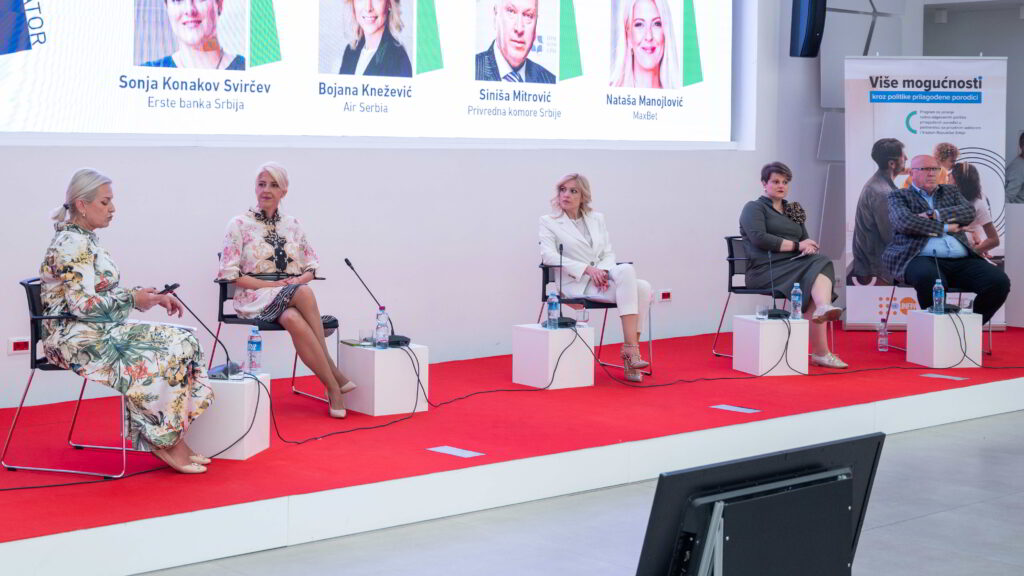 Social Responsibility in Cancer Prevention: The Importance of HPV Immunisation
Social Responsibility in Cancer Prevention: The Importance of HPV Immunisation
The “1-on-1” session, “Social Responsibility in Cancer Prevention: The Importance of HPV Immunisation,” focused on the role of corporate responsibility in promoting public health, particularly through the prevention of cancer via HPV vaccination. The discussion highlighted the importance of education, the involvement of healthcare institutions, and corporate support for public health campaigns.
Prof. Dr. Ana Banko, specialist in microbiology and parasitology and subspecialist in virology at the Institute of Microbiology and Immunology, Faculty of Medicine, University of Belgrade, spoke. Mia Medaković Topalović, founder and editor of the e-magazine Refresh Your Life, moderated the session.
The session underlined the importance of alliances between science, the public sector, and socially responsible companies in the fight against preventable cancers.
The conference was institutionally supported by the United Nations Population Fund in Serbia, UNICEF Serbia, and the Serbian Chamber of Commerce, while the Association of Parents, HPV, Erste Bank, MaxBet, and Carlsberg Serbia made it possible.
